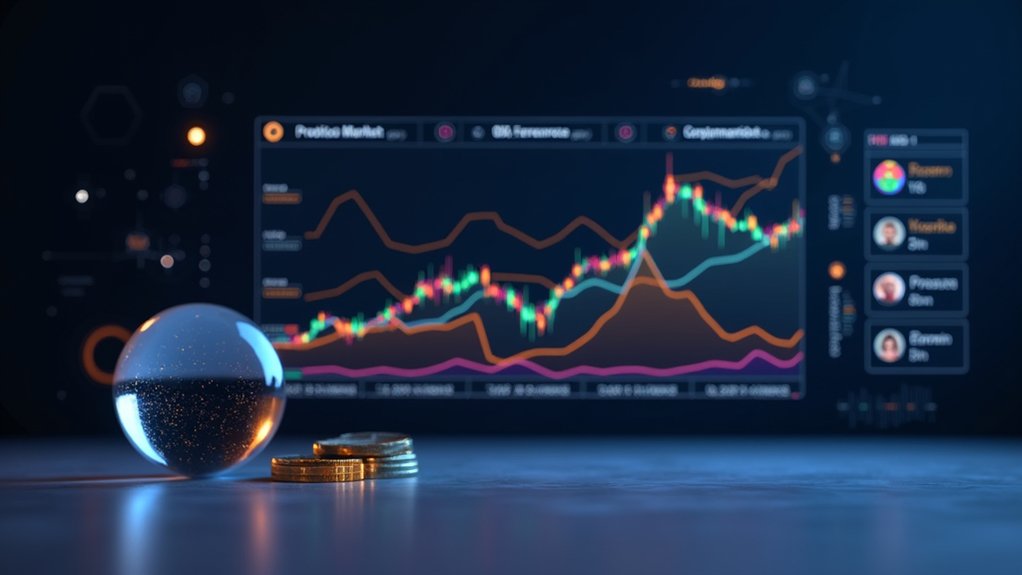How good is Polymarket at predicting the future? Pretty darn good, according to NYC data scientist Alex McCullough. His analysis shows the platform hits the mark about 90% of the time when forecasting events a month in advance. Not too shabby for a bunch of random internet bettors.
The accuracy numbers tell an interesting story. One month out: 90.5%. One week before: 89.2%. A day before: 88.6%. Then something weird happens—accuracy jumps to 90.2% at 12 hours before resolution and skyrockets to 94.2% four hours before markets close. Wait, shouldn’t predictions get steadily better as the event gets closer? Apparently not.
McCullough’s research, displayed on a Dune analytics dashboard, excluded extreme probability values to avoid skewing results. He counted markets predicting above 50% chance of “Yes” that actually resolved to “Yes” as correct predictions. Simple enough.
To keep it real, McCullough tossed out the extreme values and used a straightforward scoring system—over 50% means “Yes.”
But there’s a catch. The platform suffers from acquiescence bias—people tend to overestimate event probabilities. Markets are generally overpriced, with events resolving to “Yes” less frequently than their assigned probabilities would suggest. Human nature strikes again. Polymarket’s underlying technology enables it to serve as a leader in market data applications across various sectors.
Polymarket covers everything from politics to crypto to sports. All those predictions get recorded on blockchain for transparency. No sneaky business here—just cold, hard data. The whole thing runs on the “wisdom of crowds” principle, aggregating bets from users to generate probabilities.
Long-term markets often include slam-dunk predictions, which boosts overall accuracy stats. And that impressive 94.2% accuracy four hours before resolution? Let’s be real—by then, many outcomes are practically known. Not exactly Nostradamus territory.





